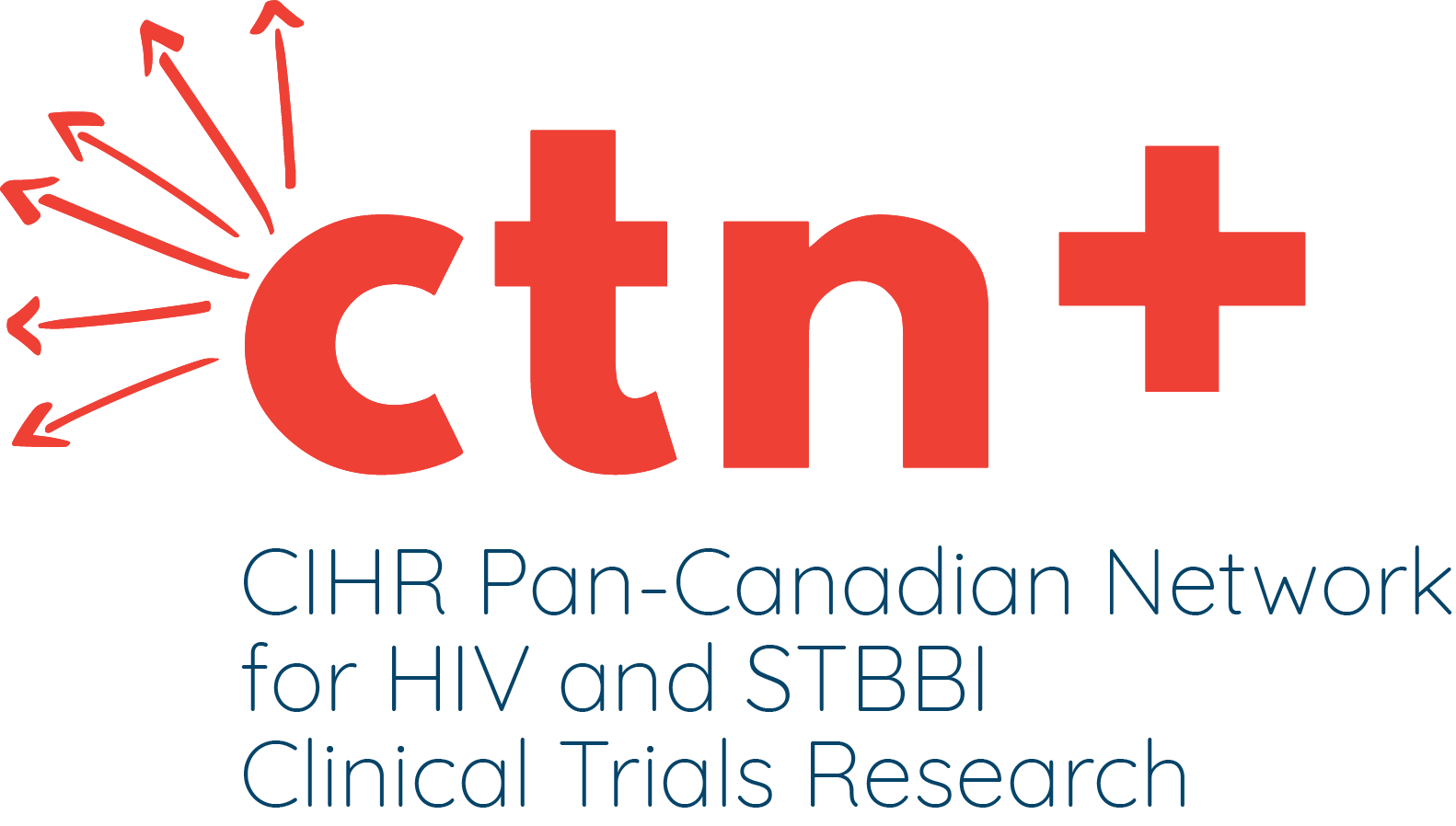Examining Loneliness and Social Support to Improve Safer Sexual Behaviour Among Gay, Bisexual, and other Men who have sex with Men.
 Shayna Skakoon-Sparling, PhD
Shayna Skakoon-Sparling, PhD
National Team Manager – Engage Study
CTN/CIHR Postdoctoral Research Fellow – HIV Prevention Lab
Psychology Department
Ryerson University
“Loneliness is an important public health issue that can impact anyone,” explains Dr. Shayna Skakoon-Sparling, “however, sexual minority men may be particularly at risk.” Shayna’s study examines the impact of loneliness on sexual minority men to better understand and address loneliness as a public health crisis.
As a socially marginalized group, sexual minority men (gay, bisexual and other men who have sex with me men) are at a higher risk for negative mental health outcomes such as loneliness, which has been linked to a number of health risk factors including compulsive sexual behaviour and a higher risk for HIV. Better social support can buffer against some of the stressors that sexual-minority men experience due to social marginalization. “In the near future, I’m looking forward to planning experimental testing of interventions to reduce loneliness,” says Shayna. “In particular, I’m looking at online intervention techniques. These are especially important during a pandemic that forces us to limit our in-person contact with others.” Shayna aims for her research to inform more effective interventions to support the mental health of sexual minority men and reduce their risk of HIV.
GetCheckedOnline: An institutional ethnography of the scale-up of internet-based testing for sexually transmitted and blood-borne infections.
Oralia Gomez-Ramirez, PhD
CTN Postdoctoral Research Fellow
Online Sexual Health Services,
BC Centre for Disease Control
School of Population and Public Health, University of British Columbia
As an embedded researcher in the Online Sexual Health Services team at the BC Centre for Disease Control (BCCDC), post-doctoral fellow Dr. Oralia Gomez-Ramirez has seen first-hand the successes and challenges of implementing an online testing program for sexually transmitted and blood-borne infections (STBBIs). Drawing from a broad range of qualitative methodologies, including institutional ethnography, Oralia has spent the last year investigating contextual factors shaping the implementation of the BCCDC’s GetCheckedOnline program. GetCheckedOnline aims to increase access and reduce barriers to testing for HIV and other STBBIs, which, having demonstrated preliminary success in six communities in BC, is currently in the process of being scaled-up and expanded to two new communities.
“The results from my research have crystalized the critical role of policy context over successive phases of scale-up,” says Oralia. As a public health scientist with a background in social sciences and program evaluation, Oralia hopes that her research will help understand and improve the use of digital technologies in public health initiatives. In particular, she highlights the role public policy can play in facilitating the use of novel interventions: “In my presentation, I will stress the importance of attending to the shifting macro-level organizers of sexual health services,” she says, “especially since the work of scaling up initiatives can unexpectedly get caught between competing public health policy frames.” Oralia also stresses the importance of health equity and access, and hopes that digital technologies can work towards making health care accessible to all.
Effects of Folate Deficient Diet on Fetal Development when Pregnant Mice are Exposed to Dolutegravir in Combination with Emtricitabine with Tenofovir.
 Haneesha Mohan, PhD
Haneesha Mohan, PhD
CTN/CIHR Postdoctoral Fellow
University Health Network (UHN)
Toronto General Research Institute
Princess Margaret Cancer Research Tower (PMCPT)
University of Toronto
Dolutegravir (DTG) is an important integrase strand transfer inhibitor (ISTI) commonly used in antiretroviral therapies. DTG is lauded for its efficacy, tolerability, high genetic barrier to resistance, and affordability. Although DTG is shown to be a well-tolerated and effective treatment for HIV, its safety in pregnancy is not well established. Initial findings from an observational study in Botswana showed an increased incidence of neural tube defects (NTDs) in babies born to women taking DTG.
Postdoctoral fellow Dr. Haneesha Mohan aims to better understand this understudied side-effect of DTG while working towards reducing its potential impacts. Haneesha’s team is examining the effects of DTG on two groups of pregnant mice: one with a folate sufficient diet and another with a folate deficient diet. “Folate deficiency has been associated with higher risk for neural tube defects,” Haneesha explains. “Our aim is gain insight on whether folate status modifies the risk of NTD and other birth defects associated with DTG.”
If folate status does indeed impact the risk of NTD and other birth defects, then folate supplementation could be implemented to reduce the prevalence of birth defects. “This could have implications worldwide for women taking DTG and contemplating pregnancy,” says Haneesha.
Exploring the Menopausal Experience in HIV
 Dr. Elizabeth King (Bagnall)
Dr. Elizabeth King (Bagnall)
CTN “Mark Wainberg” Postdoctoral Fellow
Clinician Investigator Program fellow, MSFHR trainee
CIHR Women’s Health Mentorship Grant
Department of Medicine, Division of Infectious Diseases
University of British Columbia
As of yet, there remains very little research examining how women age with HIV, let alone their experiences undergoing major life transitions during menopause. Dr. Elizabeth King is hoping to fill that gap through her study, Exploring the Menopausal Experience in HIV. She is first looking to assess the degree of symptomatology experienced in menopause by women living with HIV. From there, she hopes to become further involved in trials looking at symptom management, especially through menopause hormonal therapy, a treatment that is currently underutilized in women living with HIV.
Elizabeth’s work sits at the intersection of several exciting new areas of HIV research, especially women’s health and aging. “My hope is that this research will serve to better understand how women living with HIV experience menopause so that we can best address their needs as they undergo this important time of transition,” she explains. She hopes her research can help reduce negative symptoms and improve quality of life for women living with HIV as they transition into older adulthood.
The Camu Camu Study: Effects on circulating LPS and systemic immune activation in ART-treated participants (CTNPT 032) and The Gutsy Study: Fecal microbiota transplantation to reduce immune activation in HIV-infected ART-treated participants with low CD4 T-cell count (CTNPT 038)
 Stéphane Isnard, PhD
Stéphane Isnard, PhD
CTN/FRQ-S Postdoctoral Fellow
Research Institute of the McGill University Health Centre
Infectious Disease and Immunity in Global Health Program
As a new CTN investigator, Stéphane Isnard is bringing a fresh perspective to research on HIV and comorbidities. In his presentation, Stéphane outlines two different but complementary approaches to HIV treatment: the Camu Camu Study (CTNPT 032) investigates a natural approach to HIV treatment, whereby patients consume extracts of the Amazonian fruit Camu-camu to reduce inflammation; on the other hand, the Gutsy Study (CTNPT 038) assesses a more complex approach to reduce immune activation through fecal microbiota transplants.
“In the era of antiretrovirals, most people in our clinic have access to treatment,” comments Stéphane. “People are now seeking to continue living and aging without diseases or comorbidities. We believe this is the main concern of people living with HIV nowadays.” Stéphane’s research encapsulates a new approach to HIV studies, which draw from diverse models, animal trials, and other fields to broaden the scope of HIV clinical trials. Both studies in which Stéphane is involved aim to reduce the impact of comorbidities and improve quality of life for those living with HIV.
Action for Positive Brain Health Now: Ready, Set, Go
 Adria Quigley, PhD
Adria Quigley, PhD
Gilead/CTN Postdoctoral Fellow
Centre for Outcomes Research and Evaluation
McGill University
As life expectancy for people living with HIV increases, it is becoming clear that HIV affects both cognition and mental health over time, even with excellent viral control. The Action for Positive Brain Health Now (CTN 273) examines the role of lifestyle changes on the brain health of people living with HIV.
“Sustained lifestyle change is hard for everyone,” admits investigator Dr. Adria Quigley, “but it may be more challenging for those with a chronic condition that affects cognitive ability, eroding the very executive functions needed for effective goal-directed behavior.” The key question for Adria is not whether interventions will help brain health in HIV, but how we can increase adherence to lifestyle interventions, thereby improving overall quality of life and mental health.
This study dovetails with Adria’s interests in physical activity, mental health, and HIV. Her recently-accepted PhD thesis examines the impact of a yoga regimen on people living with HIV. Having trained and practiced as a physical therapist, Adria plans to continue studying physical impairments and postural control in HIV care.
Frequency and Quantity of Mucosal and Plasma CMV Detected in Ugandan Adults Living With and Without HIV
 Elisabeth McClymont, PhD
Elisabeth McClymont, PhD
CANFAR/CTN Postdoctoral Fellow
Department of Obstetrics and Gynaecology
University of Montreal
Cytomegalovirus (CMV) is the cause of significant morbidity and mortality globally, and disproportionately affects people living with HIV and their children. Dr. Elisabeth McClymont has used sampling from a cohort of adults living with HIV in Uganda to gain a deeper understanding of CMV.
Importantly, these data come from people living with HIV who had healthy CD4 T cell counts but were not on antiretroviral therapy. This cohort thus represents a subset of people who may not yet know their HIV status or be linked to care, thereby filling an important gap in the literature on the global impact of HIV and comorbidities.
This study continues Elisabeth’s interest in reproductive infectious diseases. She is particularly interested in women’s health and the possibilities of vaccinations to reduce the impact of comorbidities among women living with HIV. “As a next step in our research, we will analyze CMV transmission events between mother-infant pairs,” explains Elisabeth. “We hope to identify the features of CMV viruses that transmit from mother to infant to differentiate them from the non-transmitted viruses.” The information garnered from these studies will help map the ideal characteristics of a CMV vaccine that could be used to protect both people living with HIV and those without, while also stopping the transmission of CMV between mothers and their children.
An Ontario CHIWOS Snapshot and the Women-Centred HIV Care Toolkit Pilot Study in the Martimes.
 Priscilla Medeiros, PhD
Priscilla Medeiros, PhD
CTN Postdoctoral Fellow
Women’s College Research Institute
Women’s College Hospital
University of Toronto
Dr. Priscilla Medeiros assesses the level of HIV care for Canadian women via two existing studies, the Canadian HIV Women’s Sexual and Reproductive Health Cohort Study (CHIWOS; CTN 262) and the Women-Centred HIV Care Toolkit. “My research will help in further documenting the experiences of women living with HIV and contribute to the improvement and future expansion of women-centered HIV care across the country,” explains Priscilla.
Having trained as an anthropologist, Priscilla is an expert in the overlapping contextual factors that may impact the health of women living with HIV. “My research is helping to describe the important history of violence and trauma and ensuing mental health issues among some women, and most importantly, highlighting the resilience and strength that women harness for their health and well-being and that of their families and communities.”
Her study combines her expertise in applied anthropology with quantitative analysis using data made available through CHIWOS. In so doing, Priscilla aims to expand our knowledge of designing community-based health promotion interventions that enhance sex and gender health equity.






